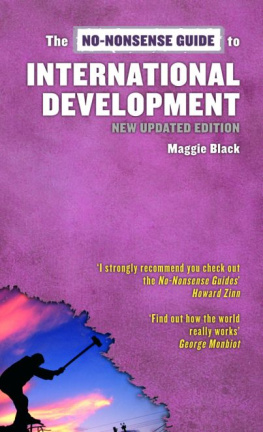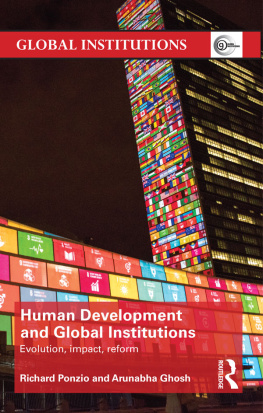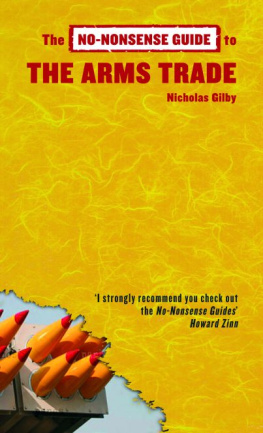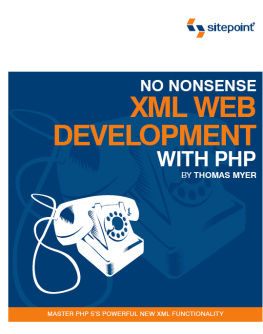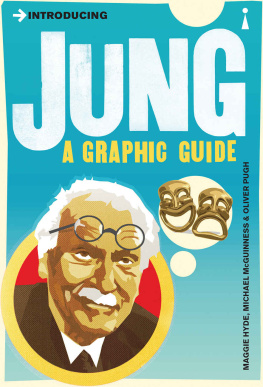The NO-NONSENSE GUIDE to
INTERNATIONAL
DEVELOPMENT
Publishers have created lists of short books that discuss the questions that your average [electoral] candidate will only ever touch if armed with a slogan and a soundbite. Together [such books] hint at a resurgence of the grand educational tradition... Closest to the hot headline issues are The No-Nonsense Guides. These target those topics that a large army of voters care about, but that politicos evade. Arguments, figures and documents combine to prove that good journalism is far too important to be left to (most) journalists.
Boyd Tonkin,
The Independent,
London
About the author
Maggie Black is an independent writer and editor on social issues relating to international development, particularly in the fields of childrens and womens rights, and water and sanitation. Among her books are: Water: A matter of life and health (OUP India, 2005), Water, Life Force (NI 2004), The No-Nonsense Guide to Water (Verso and NI, 2004), Children first: The story of UNICEF (OUP and UNICEF, 1996), and A cause for our times: OXFAM, the first 50 years (OUP and OXFAM, 1992). Maggie Black is widely traveled in the developing world, especially in East Africa and Southeast Asia, working as a consultant for organizations such as UNICEF, WaterAid, Anti-Slavery International, IPEC/ILO, SCF and Oxfam, and as a consultant editor for various UN studies and reports. She has also been a co-editor of the New Internationalist magazine, and has written for The Guardian, the Economist and the BBC World Service.
Other titles in the series
The No-Nonsense Guide to Animal Rights
The No-Nonsense Guide to Climate Change
The No-Nonsense Guide to Conflict and Peace
The No-Nonsense Guide to Fair Trade
The No-Nonsense Guide to Globalization
The No-Nonsense Guide to Global Terrorism
The No-Nonsense Guide to Human Rights
The No-Nonsense Guide to International Migration
The No-Nonsense Guide to Islam
The No-Nonsense Guide to Money
The No-Nonsense Guide to Science
The No-Nonsense Guide to Sexual Diversity
The No-Nonsense Guide to Tourism
The No-Nonsense Guide to United Nations
The No-Nonsense Guide to Women's Rights
The No-Nonsense Guide to World Food
The No-Nonsense Guide to World Health
The No-Nonsense Guide to World History
The No-Nonsense Guide to World Poverty
The No-Nonsense Guide to World Music
The NO-NONSENSE GUIDE to
INTERNATIONAL
DEVELOPMENT
Maggie Black
The No-Nonsense Guide to International Development
Published in Canada by
New Internationalist Publications Ltd
2446 Bank Street, Suite 653
Ottawa, Ontario
K1V 1A8
www.newint.org
and
Between the Lines
401 Richmond Street West, Studio 277
Toronto, ON
M5V 3A8
www.btlbooks.com
First published in the UK by
New Internationalist Publications Ltd
55 Rectory Road
Oxford OX4 lBW
New Internationalist is a registered trade mark.
Maggie Black/New Internationalist 2007
First published 2003; second edition 2007
Reprinted 2009
This edition not to be sold outside Canada.
Cover image: Mark Henley/Panos
All rights reserved. No part of this publication may be photocopied, reproduced, stored in a retrieval system, or transmitted in any form or by any means, electronic, mechanical, recording, or otherwise, without the written permission of Between the Lines, or (for photocopying in Canada only) Access Copyright, 1 Yonge Street, Suite 1900, Toronto, Ontario, M5E 1E5.
Series editor: Troth Wells
Design by New Internationalist Publications Ltd
Cataloguing data available from Library and Archives Canada.
ISBN 978-1-771130-59-2 (epub)
ISBN 978-1-771130-87-5 (PDF)
ISBN 978-1-897071-33-5 (print)
Between the Lines gratefully acknowledges assistance for its publishing activities from the Canada Council for the Arts, the Ontario Arts Council, the Government of Ontario through the Ontario Book Publishers Tax Credit program and through the Ontario Book Initiative, and the Government of Canada through the Canada Book Fund.
ON THE BANKS of Indias river Narmada, where I write this, a battle is raging between people and development. For the past 20 years, communities here have fought non-violently against the destruction to their homes and livelihoods by the construction of the massive Sardar Sarovar dam. Thousands of families have lost lands and livelihoods, homes and livestock, with negligible compensation or support.
This battle in Narmada is part of a wider war against a perverted paradigm of development which is being imposed by means of an unprincipled, unscientific, and undemocratic process. The Narmada peoples movement is one of several of its kind the Zapatistas in Mexico, indigenous communities in the Amazon and in Canada, farmers in France, India and Philippines, and fishworkers in Japan. These movements do more than symbolize the profound resistance the prevailing development model provokes. They constitute a struggle on behalf of a different conception of what development ought to be.
The injustices perpetrated in the name of international development are the starting-point of this No-Nonsense Guide. I welcome this, for if more people understood the damage being done to people and natural systems, tragedies such as the one we face today in the Narmada Valley might be avoided. People who depend upon the natural resource base are finding that it has been unjustly acquired, stripped from them, and its natural wealth commodified to serve the interests of a consumerist lite. Lands, water and forests are harnessed for the profit and benefit of those with power to purchase and invest nationally and globally. Local systems of government have been forced to adjust in such a way as to intensify the pauperization of those who, in many societies, still represent considerable numbers even the majority. People faced with loss of life, dignity and livelihood have no option but to fight for their survival. From the micro-level, these movements connect into a global action demanding a major transformation of what development is and ought to be about.
Maggie Black is a writer with a difference. In this No-Nonsense Guide to International Development she examines the idea of development from a historical perspective, looking through different economic, social and political lenses in the search for a more just and sustainable model. But she never loses the sensitivity or descriptive power so often abandoned in analytical discourse. Those committed to the defense of the downtrodden victims of injustice and exploitation will welcome a perspective on this vast subject which places their predicament at center stage. I sincerely hope that this Guide reaches and informs a new section of thinking people across the world. Let as many of them as possible become not merely spectators of development and its consequences, but supporters of and even participants in the new politics of transformation.




